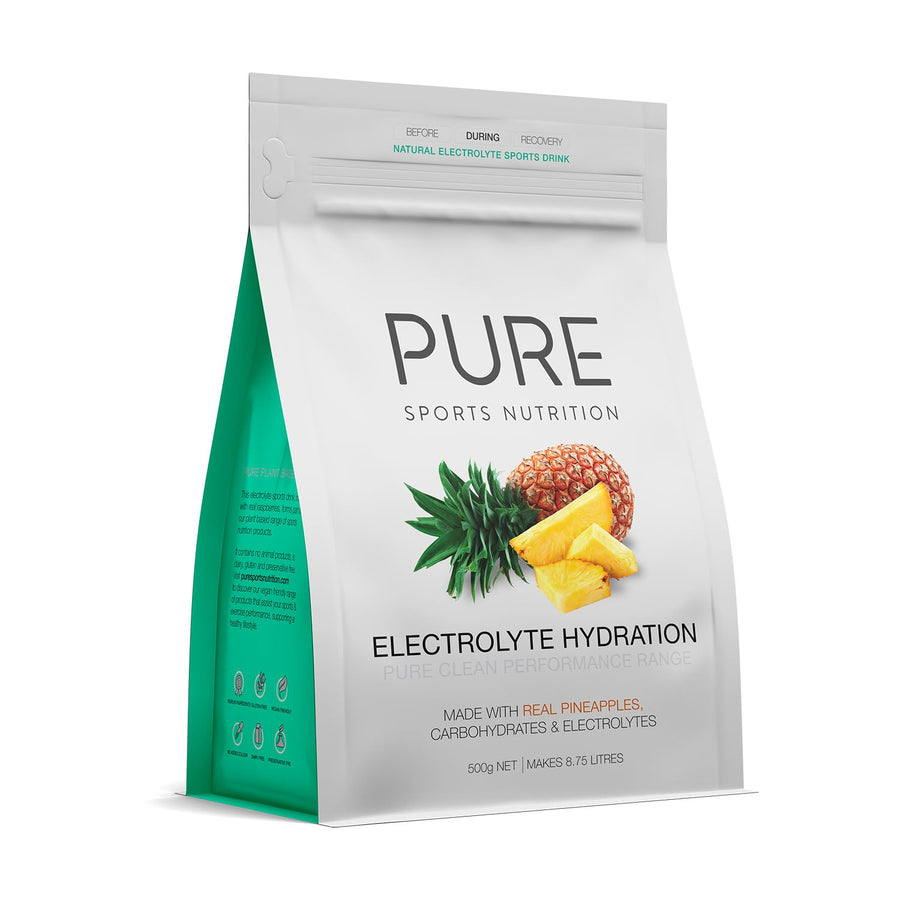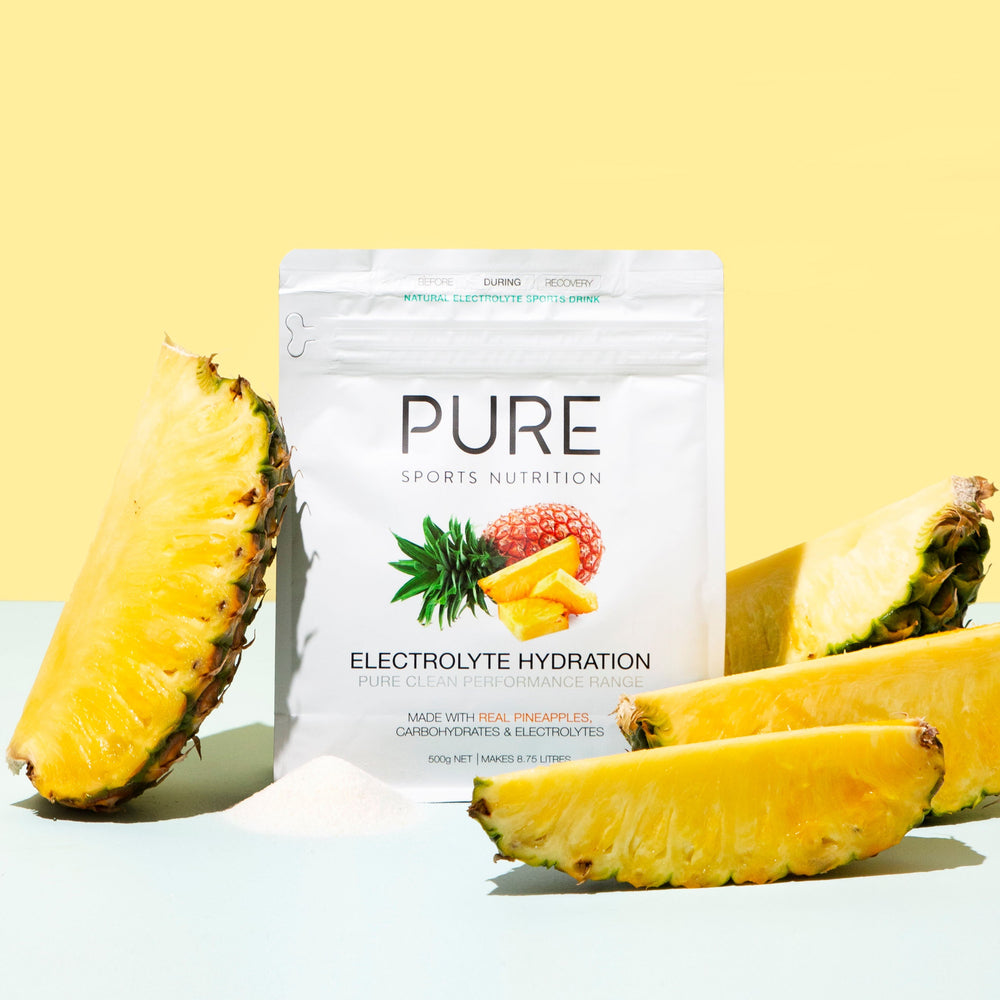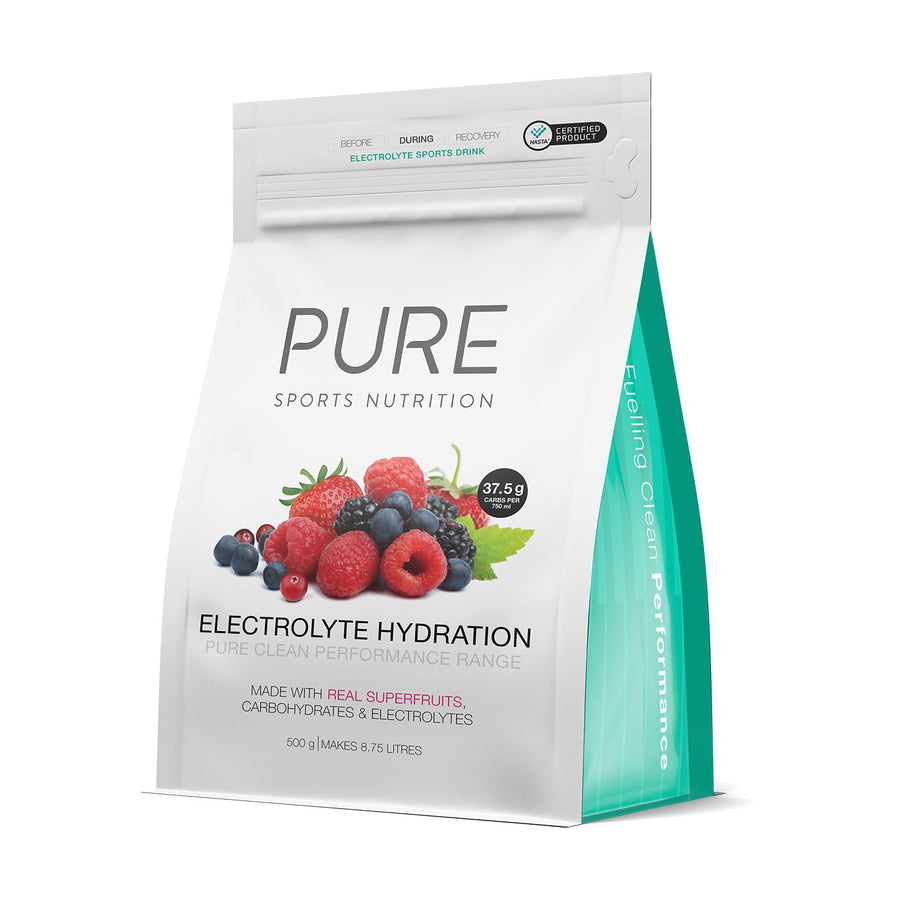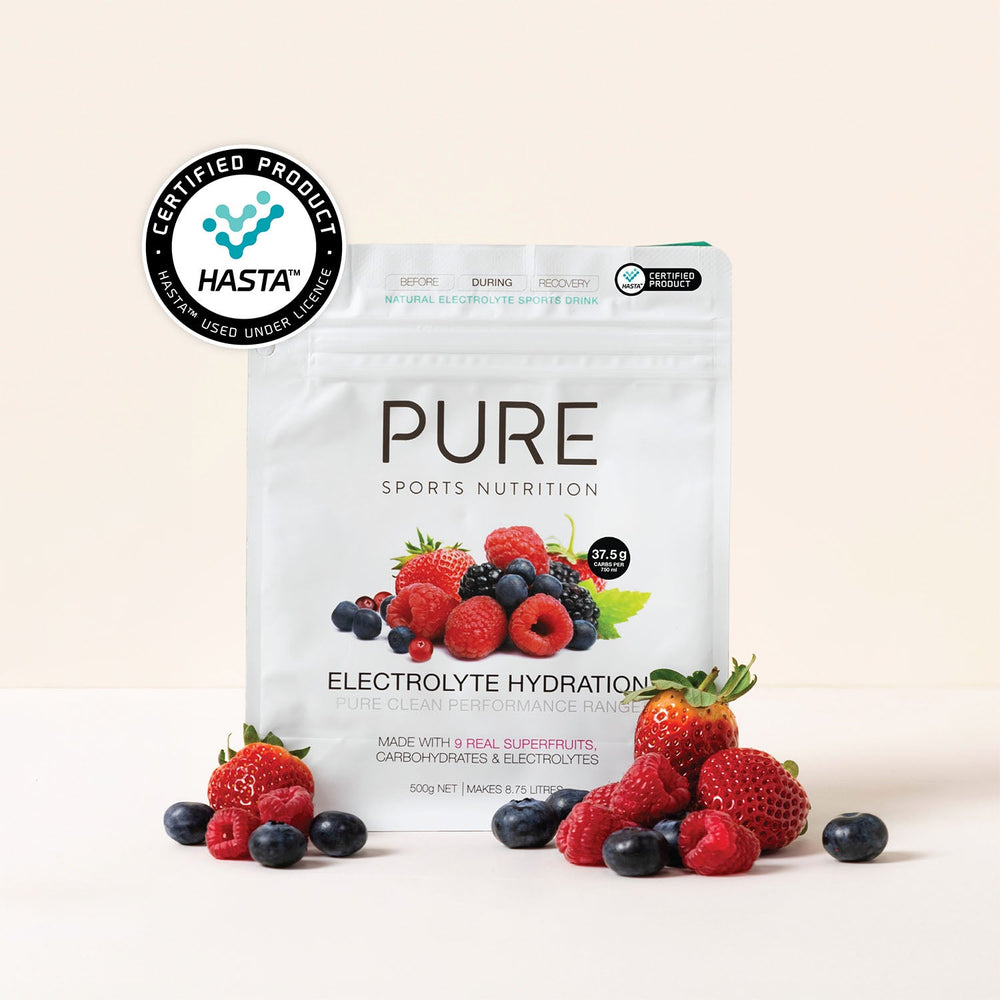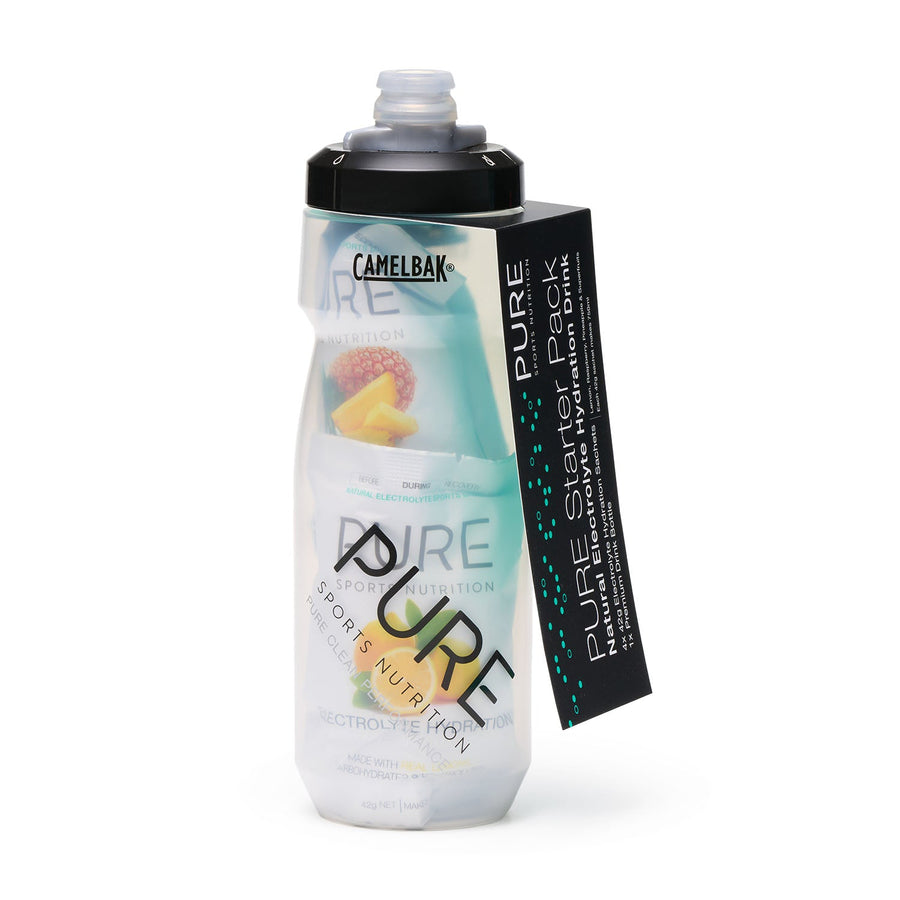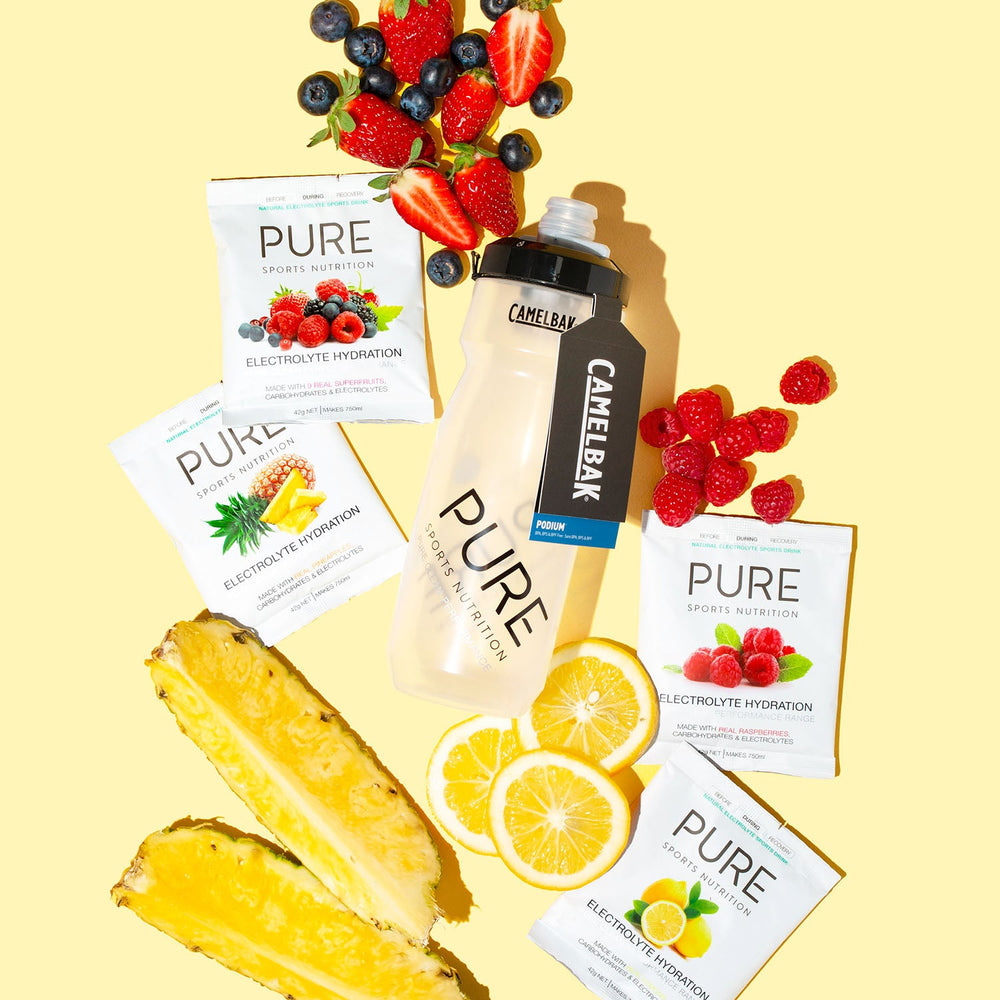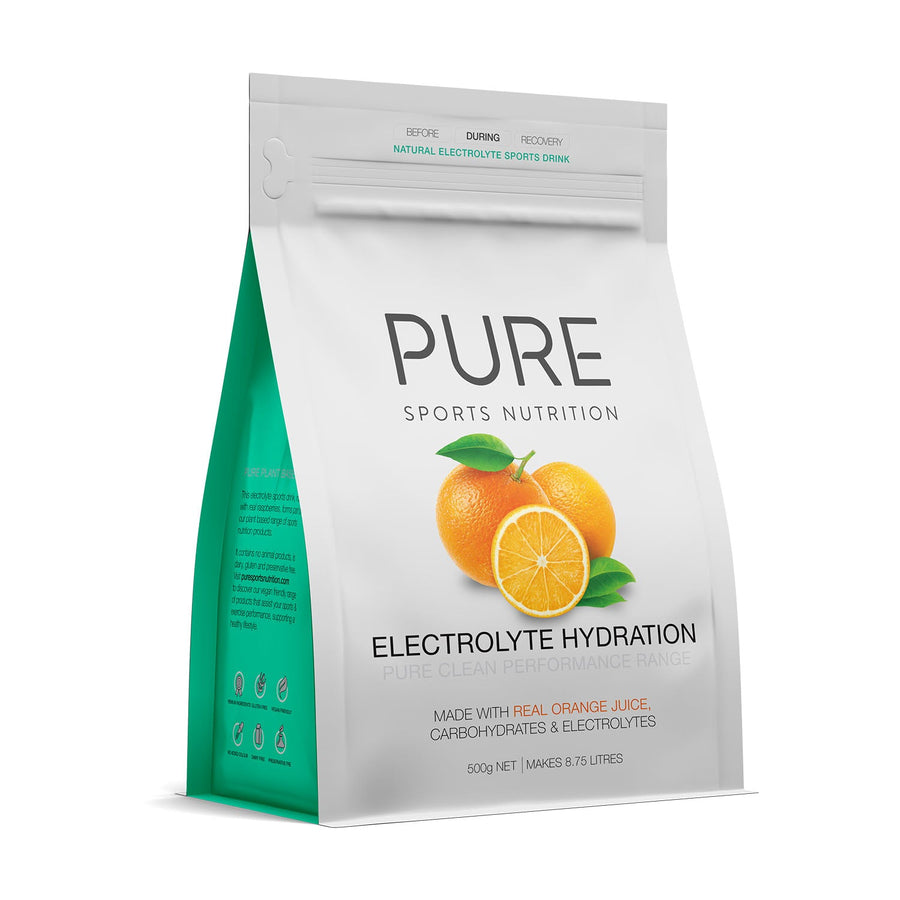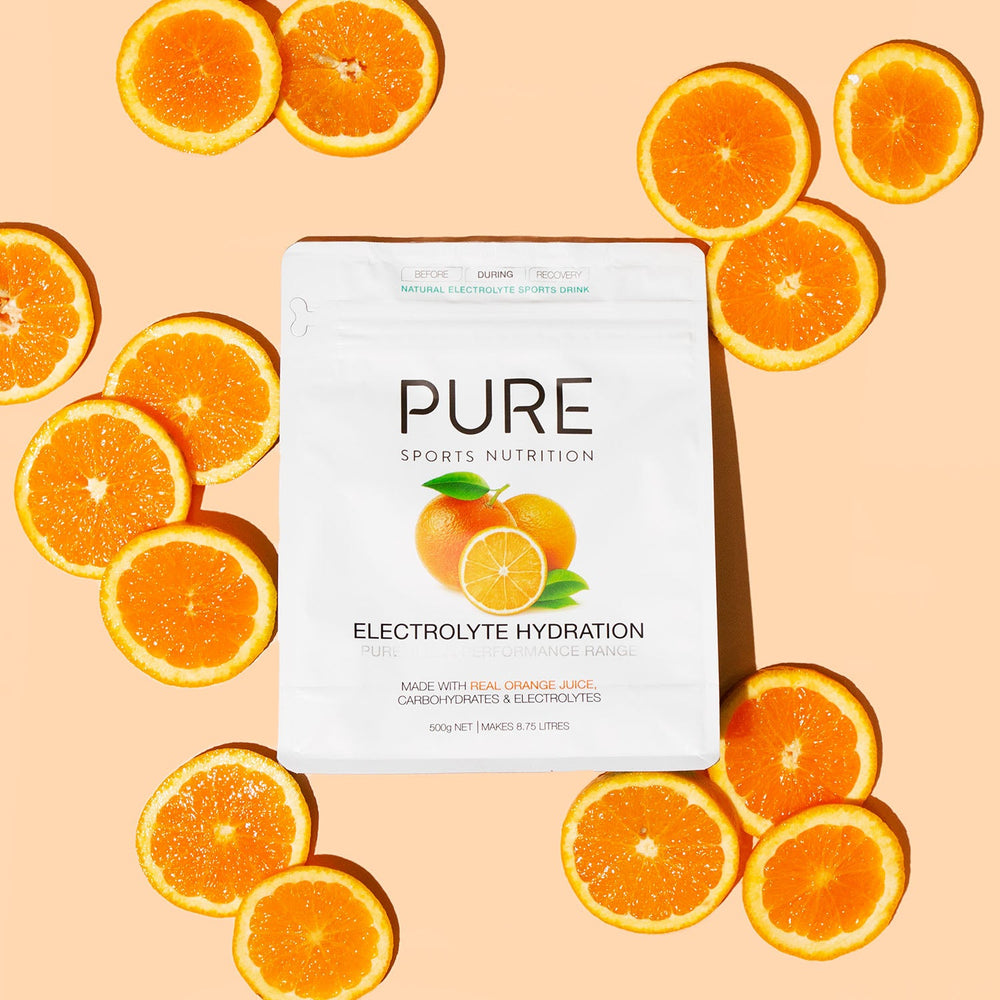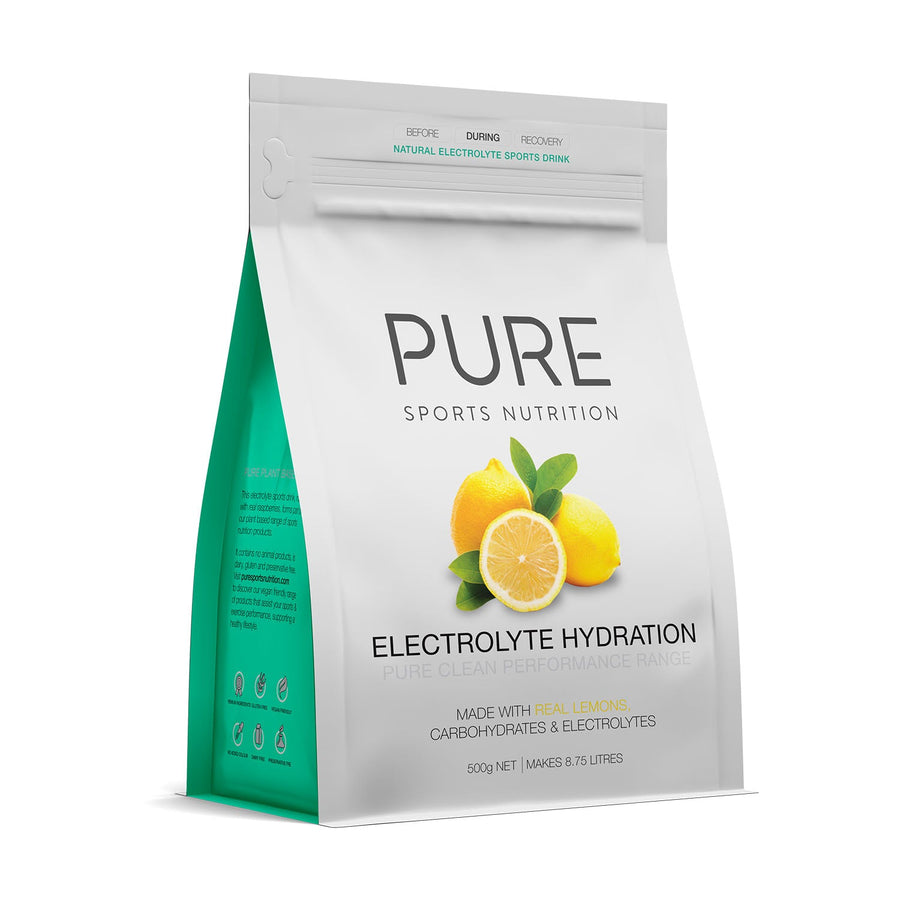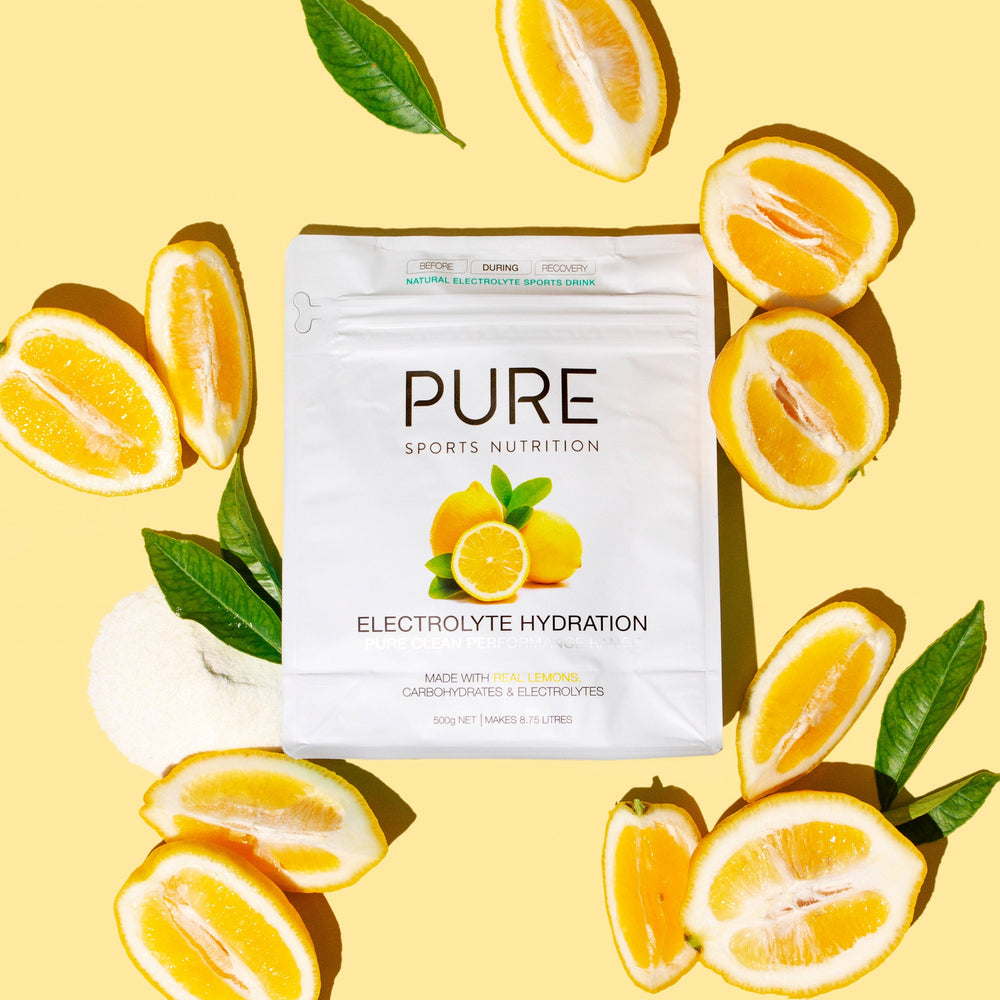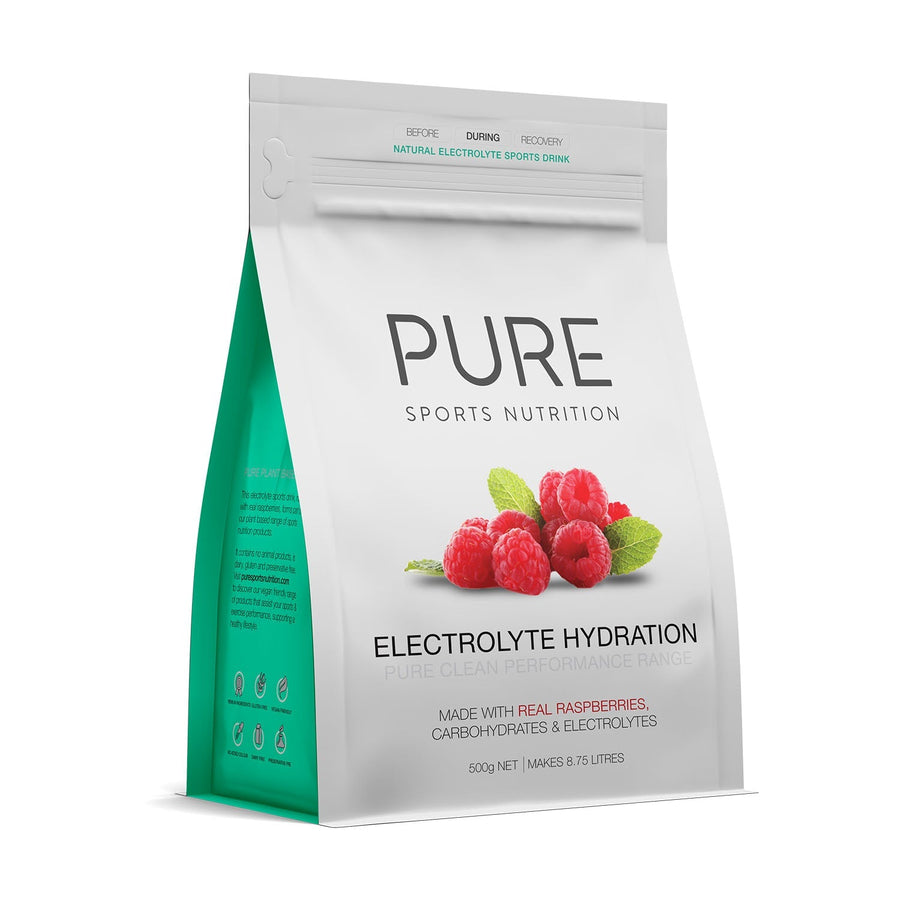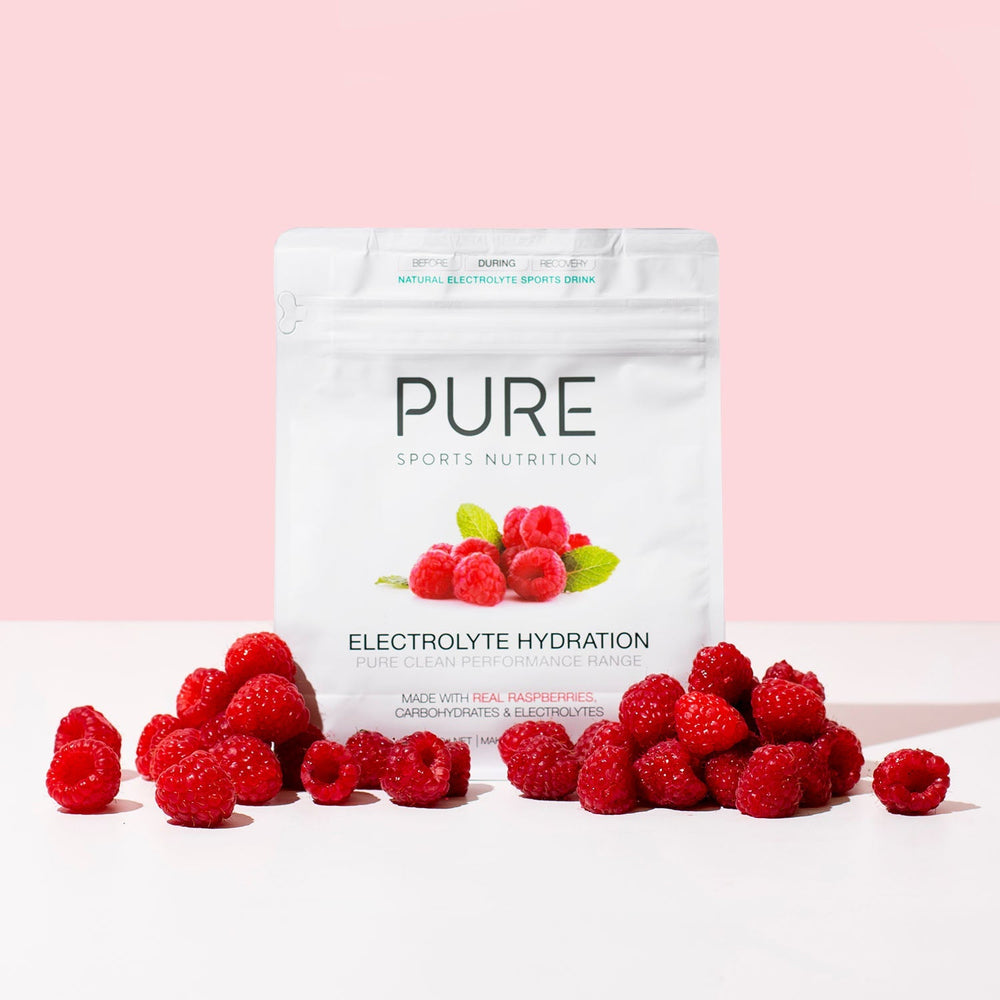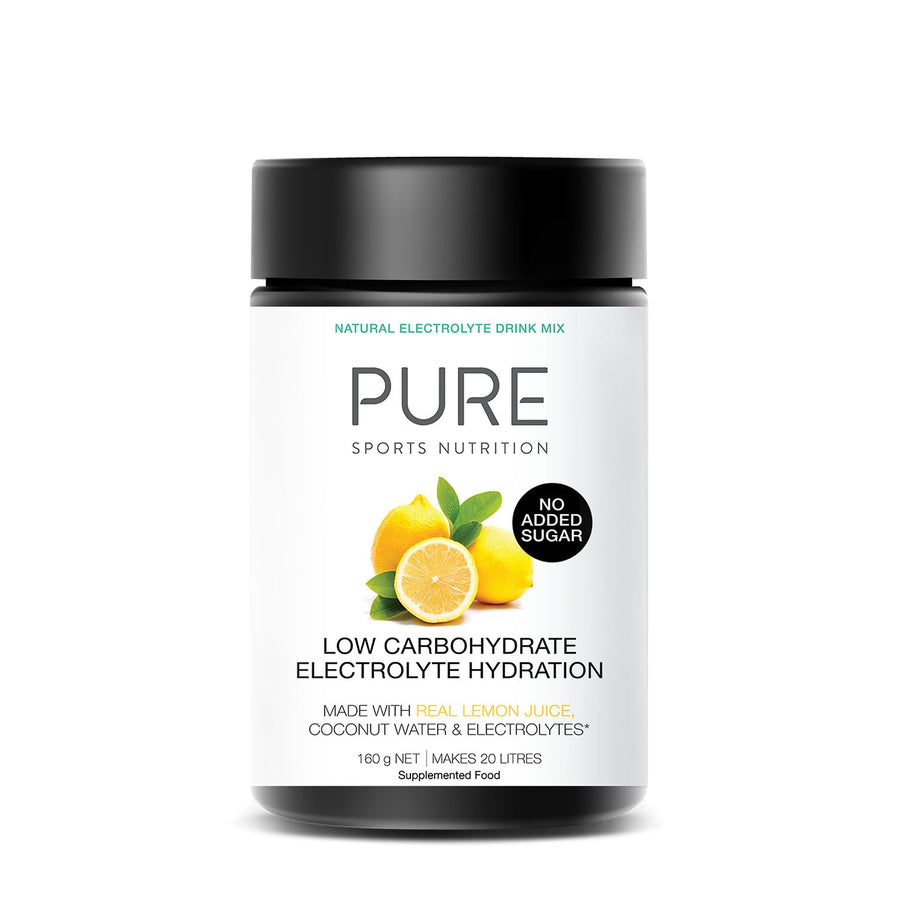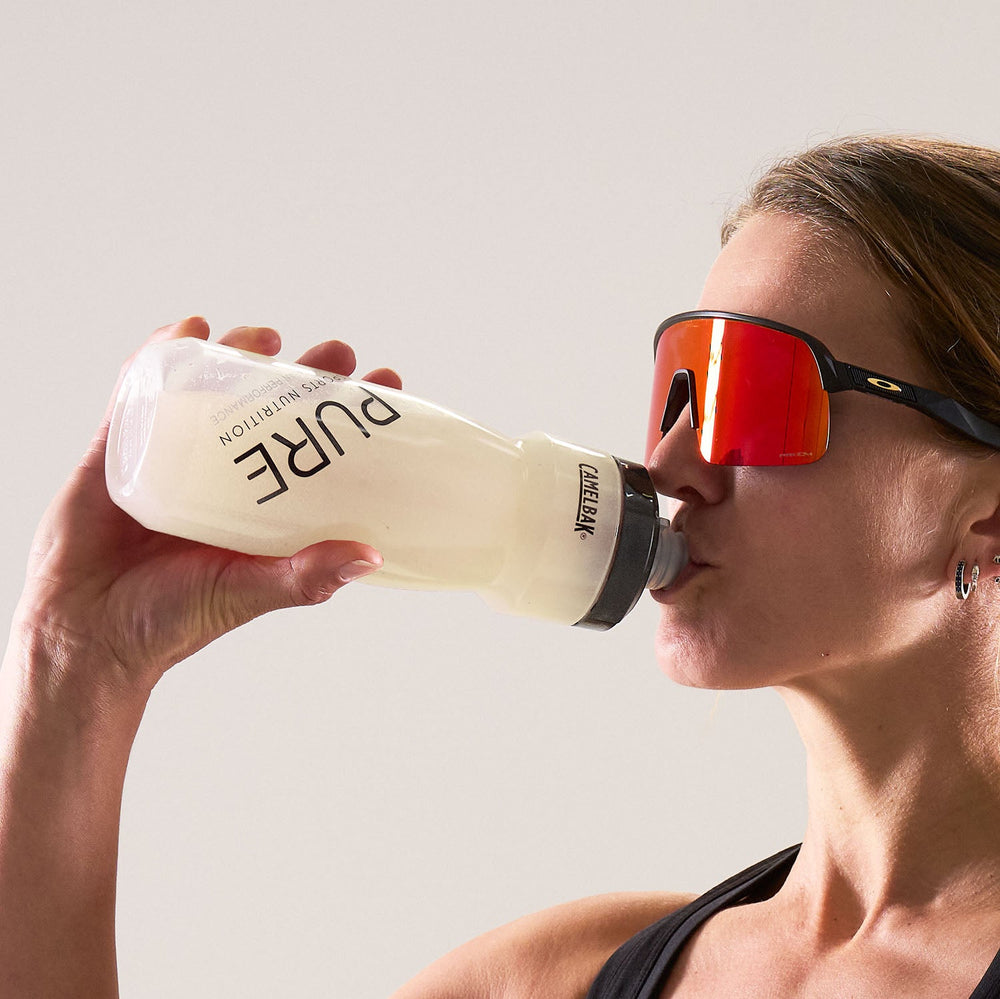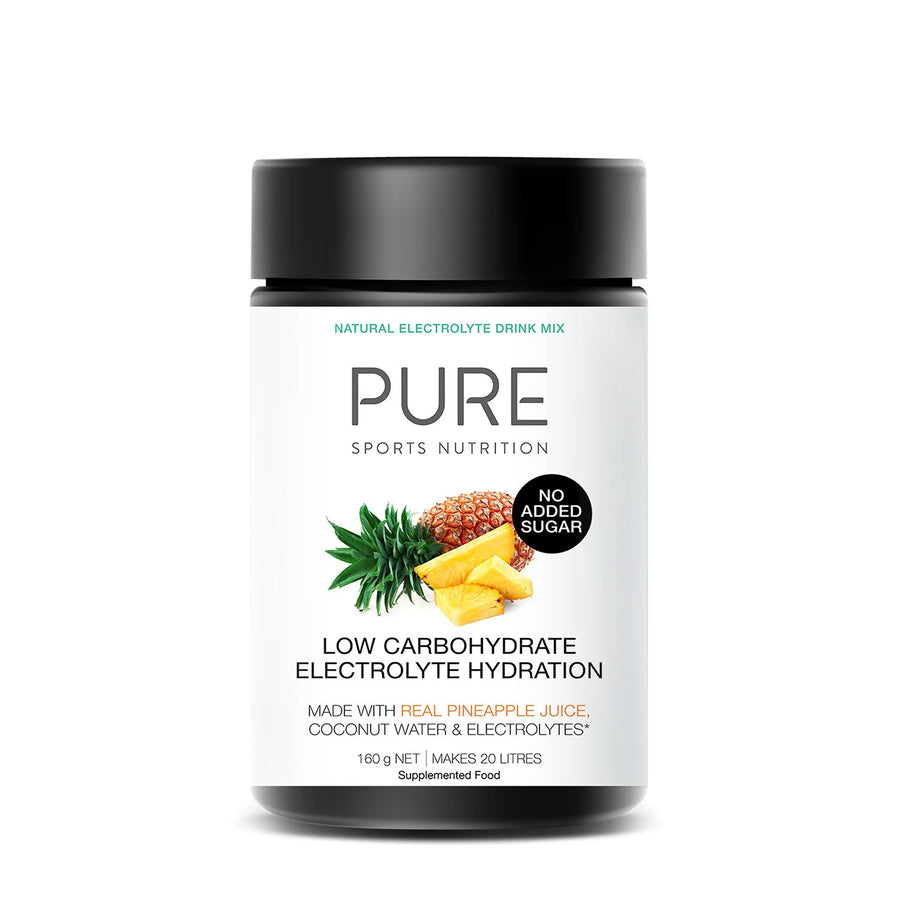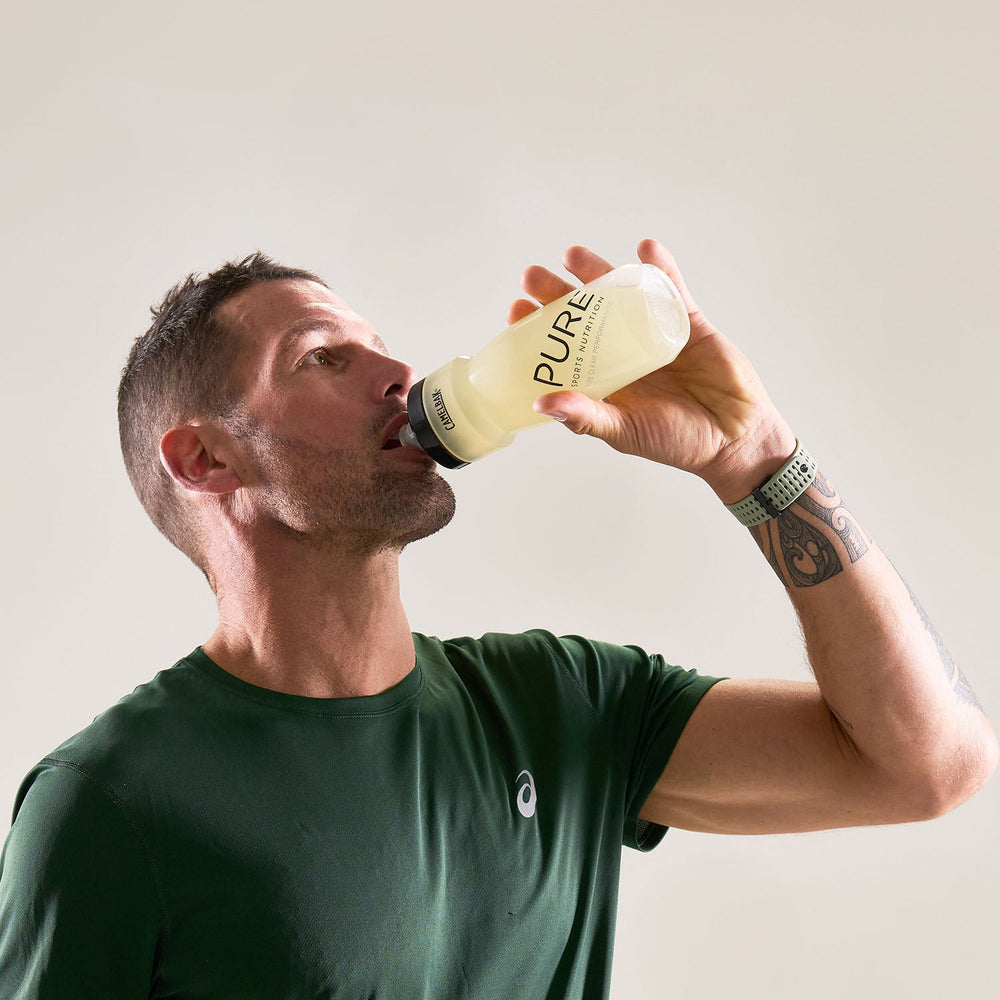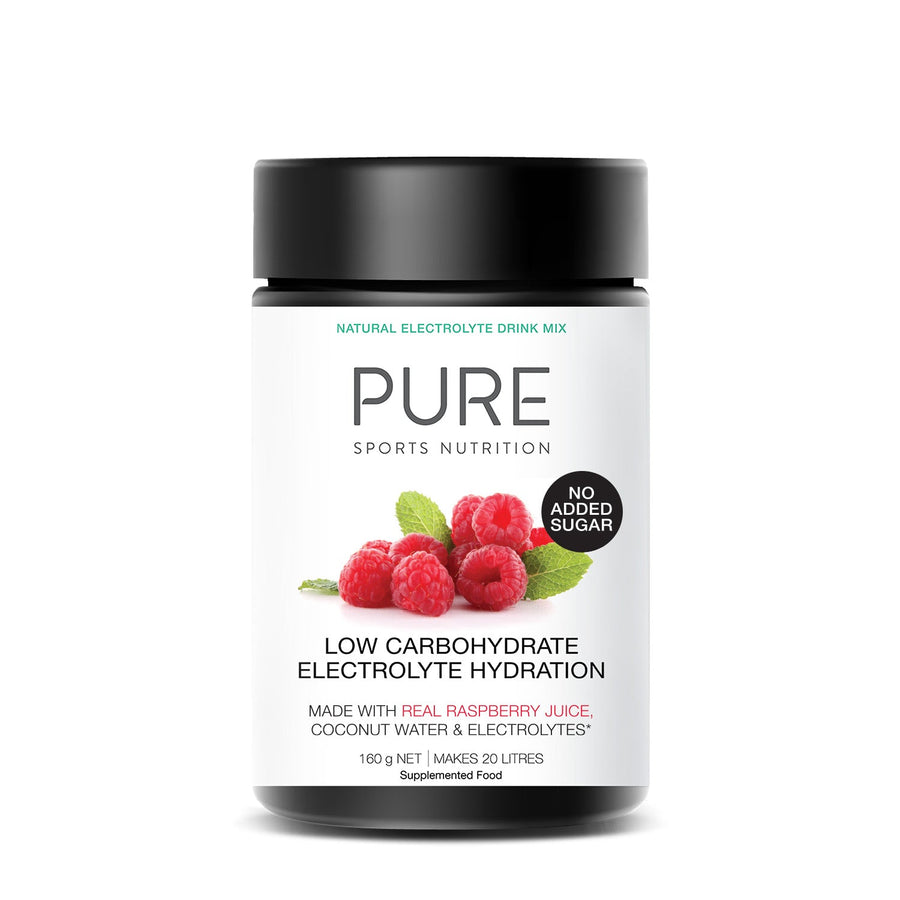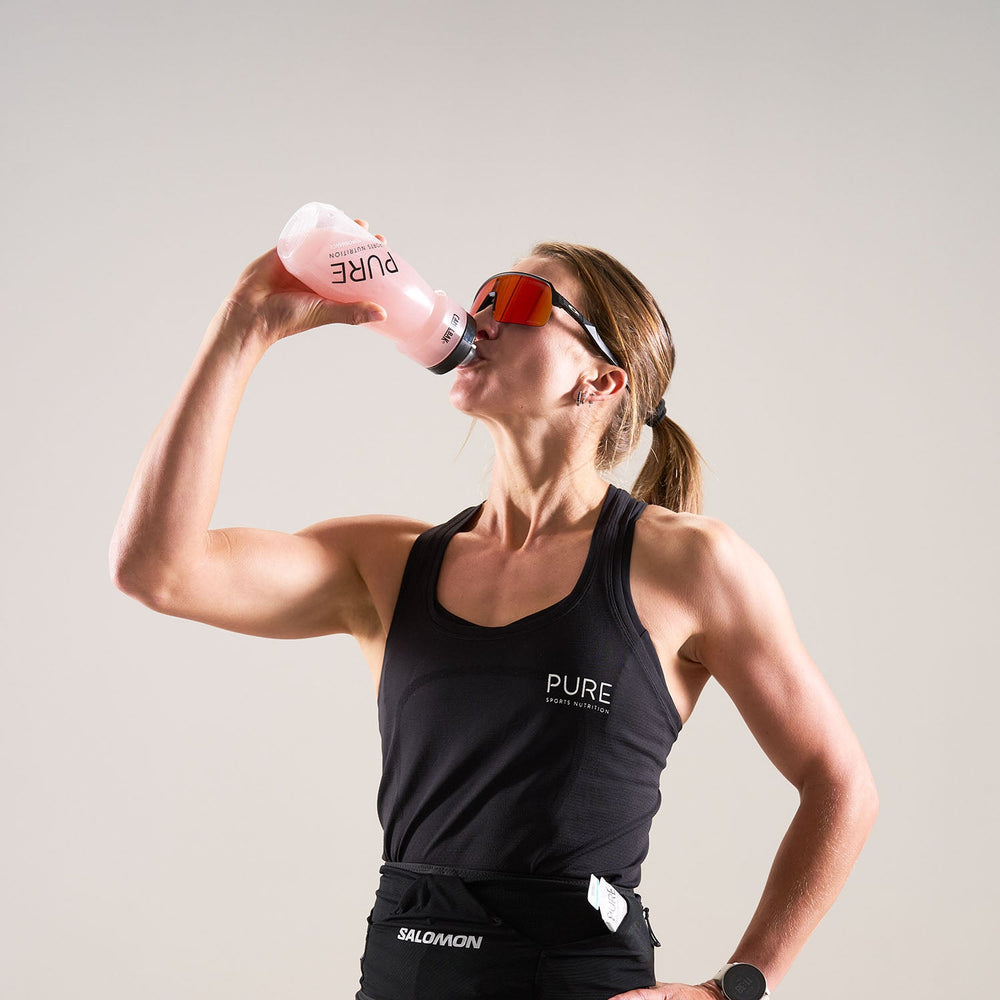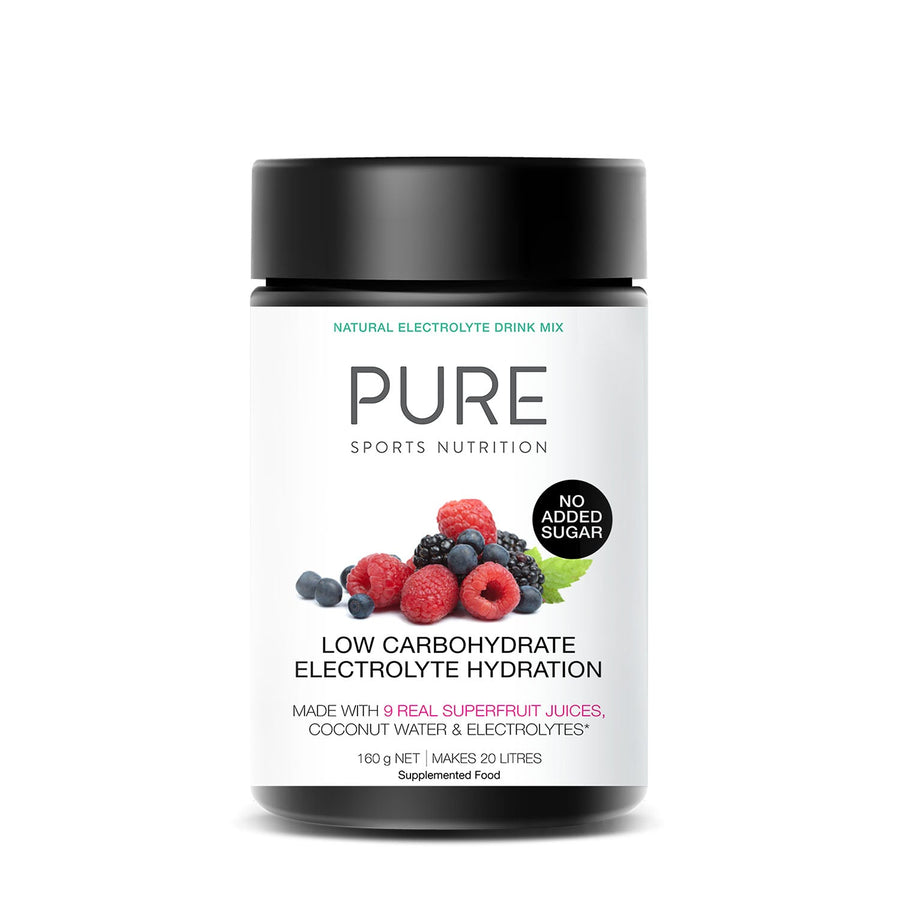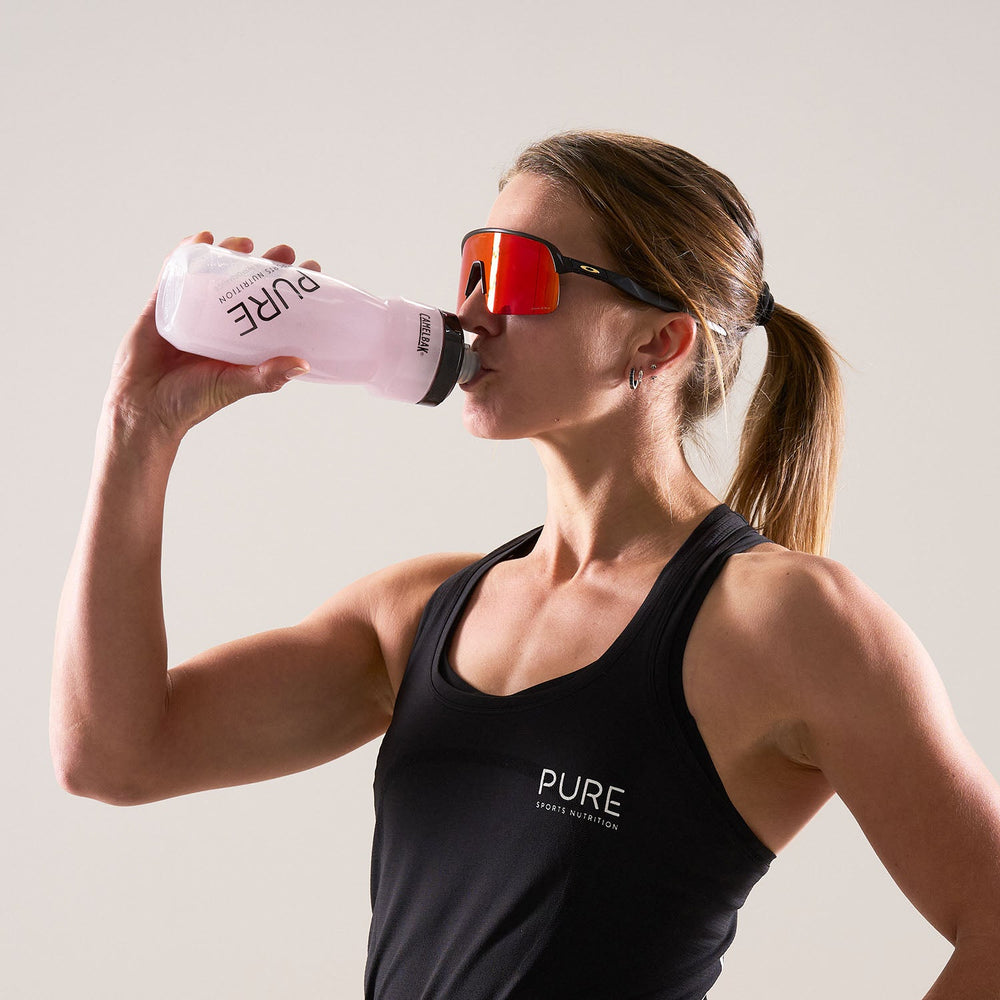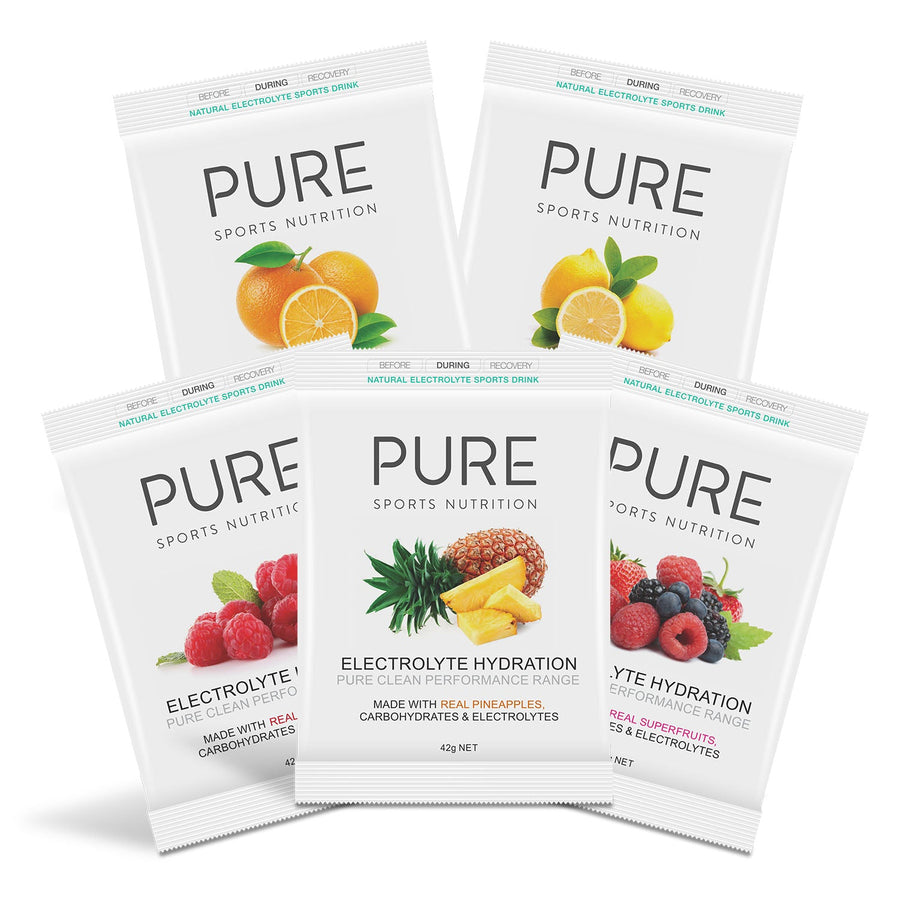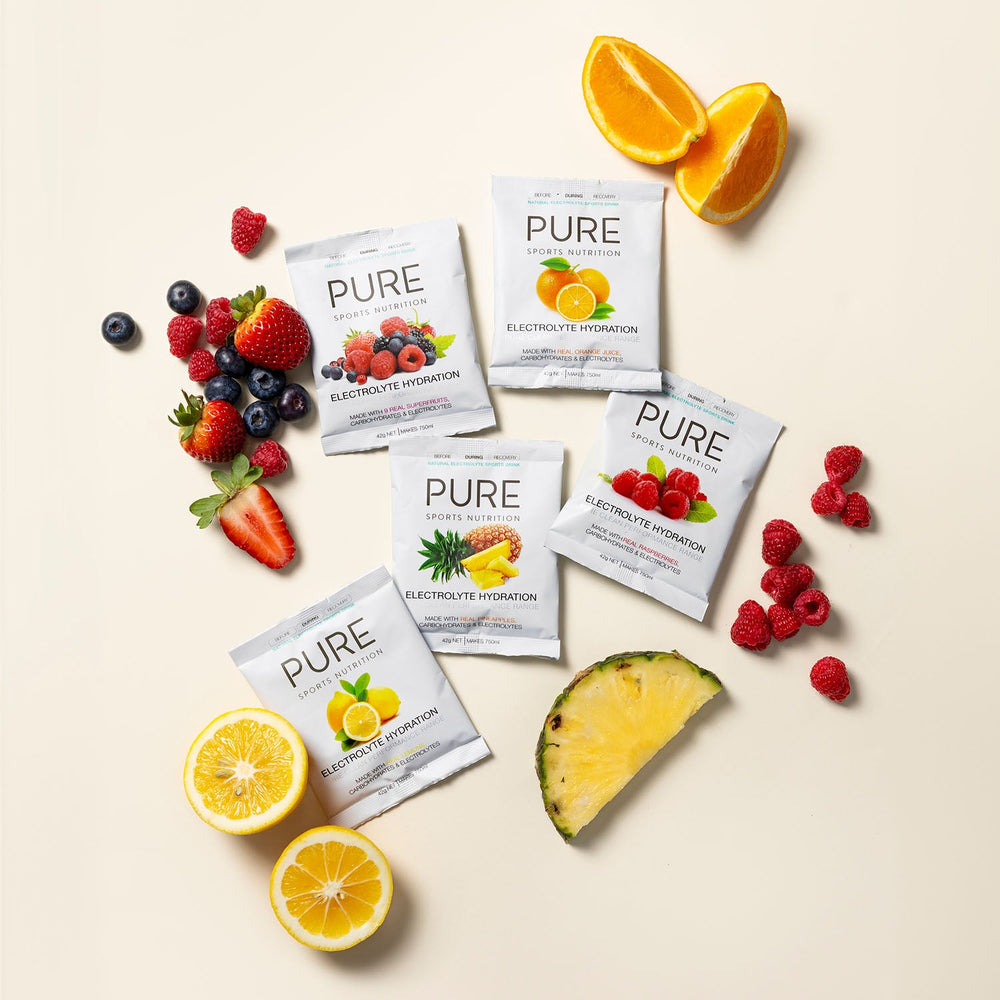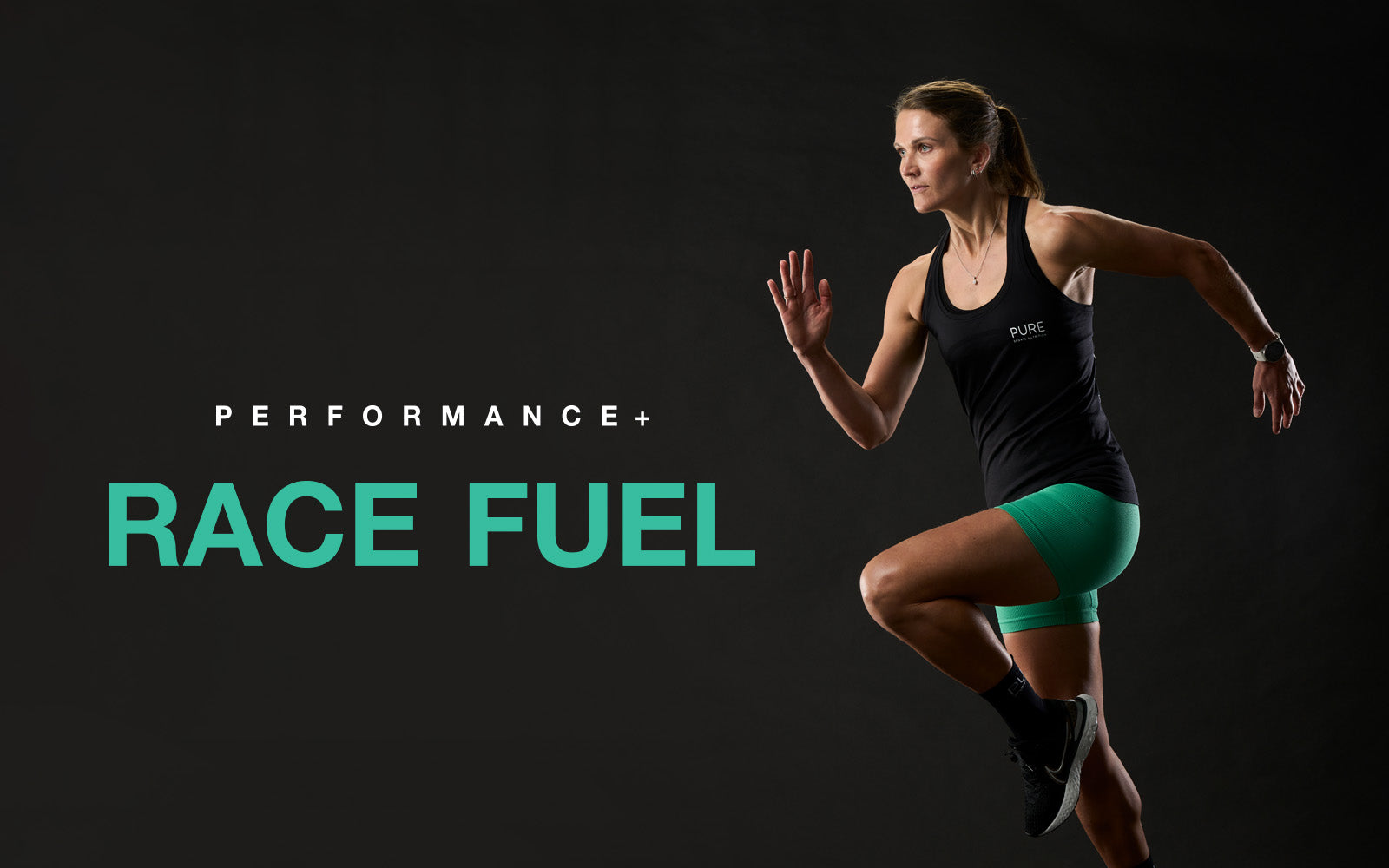
The Science Behind Race Fuel
PURE Performance + Race Fuel is designed specifically to enable endurance athletes to take in large amounts of carbohydrate each hour, especially during sustained high-intensity efforts, without the stomach issues that fuelling can bring.
Each serve delivers a powerful 90 grams of carbs, along with a full profile of electrolytes to support hydration and muscle function during intense sessions or races.
Race Fuel is now available in two new flavours, Raspberry and Tropical, giving athletes more options when it comes to taste over long events. These lightly flavoured options complement the existing unflavoured version, offering variety but not risking flavour fatigue like traditional over-flavoured sports drinks.
Carbohydrate Intake Guidelines for Endurance Athletes
Carbohydrate recommendations during exercise are based on duration and intensity.¹
| Duration | Carb Intake Recommendation |
| <1 hour | None (except for high intensity race situations) |
| 1–2 hrs | 30–60g/hour |
| 2–3 hrs | 60–90g/hour |
| 3+ hrs | Up to 90g/hour (multiple carb sources recommended) |
Although a full PURE Performance + Race Fuel serve provides 90 grams of carbohydrate, it can be mixed to any desired ratio to support the needs of each and every athlete. i.e One serve split over 2 x 750ml bottles = 45 grams carbohydrate per bottle or one serve mixed with 300ml creates 1 x 90 gram carbohydrate gel.
What is Cluster Dextrin®?
Cluster Dextrin® (highly branched cyclic dextrin) is a high molecular weight carbohydrate that allows for rapid gastric emptying with a low risk of gastrointestinal upset. It delivers a steady energy release, making it ideal for long-duration training and racing.
This performance carbohydrate is now widely used by professional and recreational athletes seeking to fuel longer, harder efforts without the digestive distress that sometimes comes with other carbohydrate sources.²⁻³
New Flavours, Same Trusted Formula
Race Fuel is now available in two light refreshing flavours, Raspberry and Tropical, designed to be palatable during prolonged efforts and hot conditions. These additions offer more flexibility, especially for athletes who prefer flavours across longer sessions or multi-hour races. Flavoured or unflavoured, the formula remains the same.
Ingredients

How to Use Race Fuel
We recommend mixing one serve (98g) with 750ml of water, however is can be mixed to your desired ratio and consistency depending on your fluid needs and exercise conditions. It can also be used in the lead up to an event as a concentrated electrolyte and carbohydrate loading solution.
Race Fuel can be used on its own or paired with PURE Energy Gels or PURE Electrolyte Hydration to customise your fuelling strategy. Add up each of the carbohydrate components and match to your desired target.
What Athletes Are Saying
“The PURE Performance + Race Fuel is a game changer. Having fuel, electrolytes and hydration all in one product makes life so much easier on long sessions.” - Jon R.
“It’s the best. I use it for 2 hour plus rides and races. Super light in flavour, doesn’t upset the stomach. Love it!” - Alistair C.
“The unflavoured version is great if you want to add your own flavouring, or keep it plain. No GI issues and easily gets me to 90g carbs/hour.” - Christina B.
“I struggle with gels, so this is perfect. Easy to drink and easy on the gut.” - Emily H.
Backed by Science; PURE Performance + Race Fuel is based on evidence from world-leading sports nutrition research.
References:
Jeukendrup, A. (2014). A step towards personalised sports nutrition: carbohydrate intake during exercise. Sports Medicine, 44(Suppl 1): S25–S33.
Takii H. et al. (2004). Development of a new type of dextrin with reduced osmotic pressure and high water solubility. J Food Sci, 69(5): C303–C307.
Furuyashiki T. et al. (2014). Effect of highly branched cyclic dextrin on gastric emptying and exercise performance. J Strength Cond Res, 28(2): 572–578.
Stellingwerff, T. (2012). Case study: nutrition and training periodisation in three elite marathon runners. Int J Sport Nutr Exerc Metab, 22(5): 392–400.
